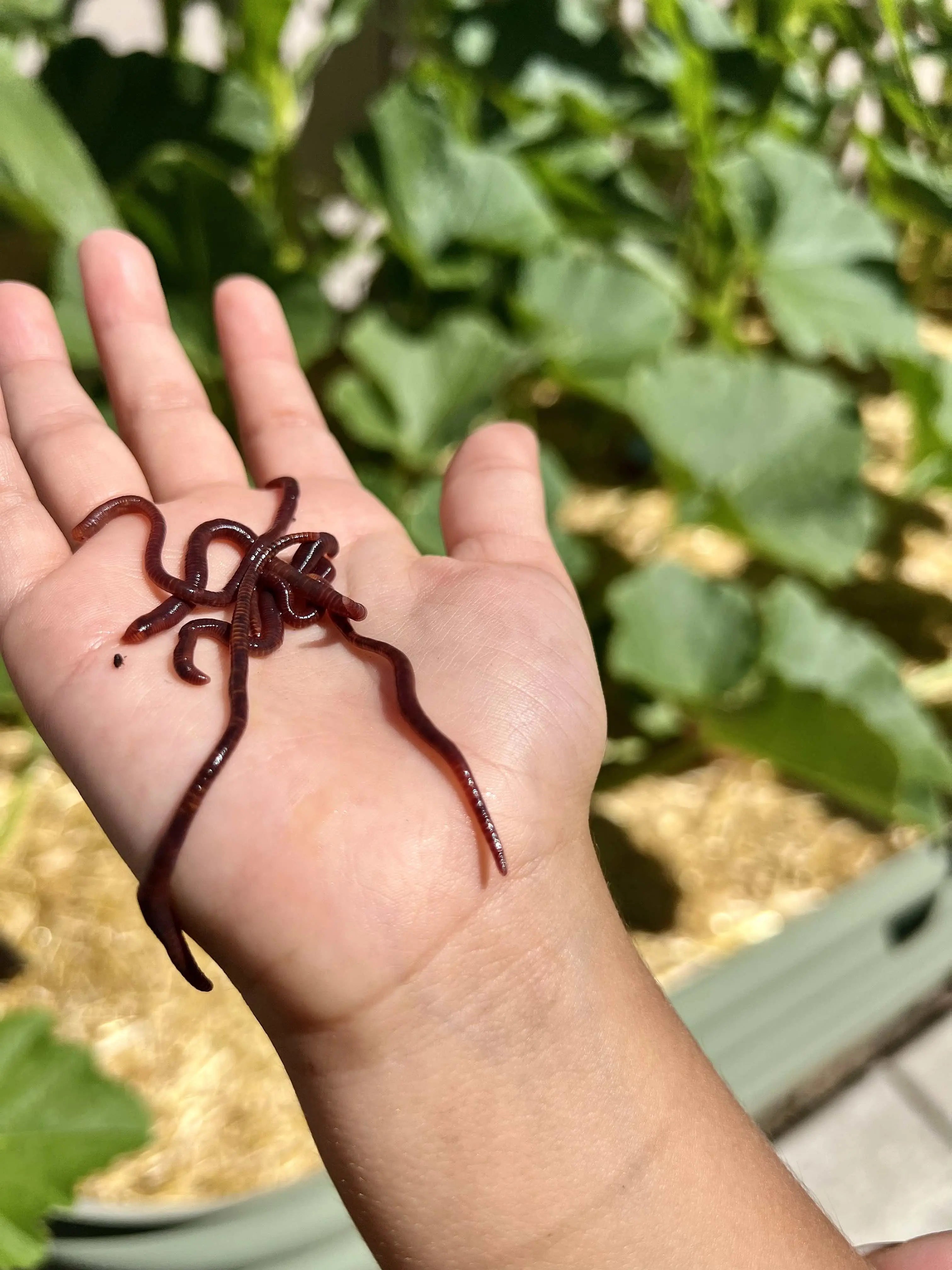Achieve a Greener Lawn with the Help of Red Wiggler Express Lawn Care Products
Achieve a Greener Lawn with the Help of Red Wiggler Express Lawn Care Products
Blog Article
Open the Keys of Red Wigglers: Your Overview to Composting Success
The assimilation of red wigglers right into composting techniques presents a considerable chance for improving dirt health and wellness and advertising sustainability. These microorganisms are not simply efficient recyclers of natural waste; they use a myriad of advantages that can change garden administration. Comprehending their requirements and habits is critical for maximizing their possibility, from establishing a proper worm container to feeding them the ideal materials. As we explore the necessary elements of successful vermicomposting, one might wonder just how these tiny animals can result in a much more dynamic and productive garden ecological community.

What Are Red Wigglers?
(Red Wiggler Express)Red wigglers, clinically called Eisenia fetida, are a varieties of earthworm mostly utilized in composting because of their remarkable ability to decompose raw material successfully. These worms are identified by their reddish-brown pigmentation and a fractional body, normally determining in between 3 to 4 inches in length. Unlike various other earthworm species, red wigglers grow in abundant, organic atmospheres, making them optimal for vermicomposting systems.
Indigenous to North America, they are usually found in rotting leaves and compost piles, where they play a vital function in nutrient recycling. Their adjustment to staying in a moist, cardio setting allows them to take in large amounts of natural waste, simplifying right into nutrient-rich castings that enhance soil wellness.
Red wigglers reproduce quickly, with a single worm qualified of creating several cocoons each week, each containing numerous hatchlings. Comprehending the biology and habits of red wigglers is vital for maximizing their capacity in composting applications.
Advantages of Utilizing Red Wigglers
Using the power of red wigglers in composting offers various advantages that enhance soil health and promote sustainable waste administration. These impressive microorganisms efficiently break down organic issue, transforming kitchen scraps and lawn waste into nutrient-rich vermicompost. This completed product is exceptionally beneficial for plant development, as it improves dirt structure, increases wetness retention, and enhances nutrition schedule.

(Red Wiggler Express)Furthermore, the existence of red wigglers in your composting system can increase the composting process, creating premium garden compost in a fraction of the moment contrasted to traditional techniques. The castings produced by these worms are likewise bristling with beneficial microorganisms that even more enrich the soil environment.
Establishing Your Worm Bin
Producing an efficient worm bin is a simple procedure that can dramatically boost your composting initiatives. The very first step is choosing an ideal container. Worm bins can be made from plastic storage space containers, wood boxes, or readily available worm containers. Ensure the container has adequate drainage and ventilation holes to keep optimal wetness degrees and air flow.
Next, prepare the bed linens product, which acts as the worms' environment. A mix of shredded newspaper, cardboard, and coconut coir works well, providing a comfy environment for the worms. Goal for a bedding deepness of concerning 4-6 inches. Dampen the bed linens lightly, ensuring it resembles a damp sponge without excess water merging near the bottom.

Feeding Your Red Wigglers
To ensure the health and wellness and productivity of your red wigglers, it is important to provide them with a well balanced diet that satisfies their nutritional needs. Red wigglers flourish on a varied variety of natural materials, which not only provide needed nutrients but also advertise effective composting.
Start by including kitchen scraps such as vegetable peels, fruit cores, and coffee premises. Prevent citrus fruits, onions, and garlic, as these can be harmful to worm health and wellness. Additionally, present shredded paper, cardboard, and completely dry leaves to create a well-aerated setting.
Feeding regularity must be monitored; typically, worms can eat half their body weight in food weekly. It is critical to avoid overfeeding, as excess food can result in undesirable smells and bring in pests. An excellent technique is to add food in percentages, enabling worms to refine it before introducing a lot more.
Maintaining wetness degrees is likewise crucial; the bed linen needs to be wet but not soaked. Last but not least, make sure to routinely inspect the temperature and pH degrees of the bin to ensure an ideal environment for your red wigglers, eventually improving their composting performance.
Harvesting and Using Garden Compost
An effective composting process with red wigglers culminates in the rich, dark garden compost called vermicompost, which can dramatically boost soil health and wellness and plant development. Harvesting this nutrient-dense product normally happens every 3 to six months, depending upon the size of your system and the amount of natural issue being processed.
To harvest, gently different the garden compost from the worms and any type of undecomposed products. One efficient technique involves relocating the components of the bin to one side and including fresh bed linen and food to the Red Wiggler Express empty room, urging the worms to move. After a few days, the garden compost can be gathered from the opposite side.
It is important to make use of vermicompost correctly to optimize its benefits. By including vermicompost into your horticulture routine, you not only reuse natural waste but likewise develop a flourishing ecological community that supports sustainable horticulture techniques.
Verdict
In recap, red wigglers offer as exceptional allies in composting efforts, transforming organic waste into nutrient-rich vermicompost. By understanding the optimal conditions for their environment, feeding needs, and garden compost harvesting strategies, garden enthusiasts can boost dirt health and wellness and promote plant vitality.
Report this page